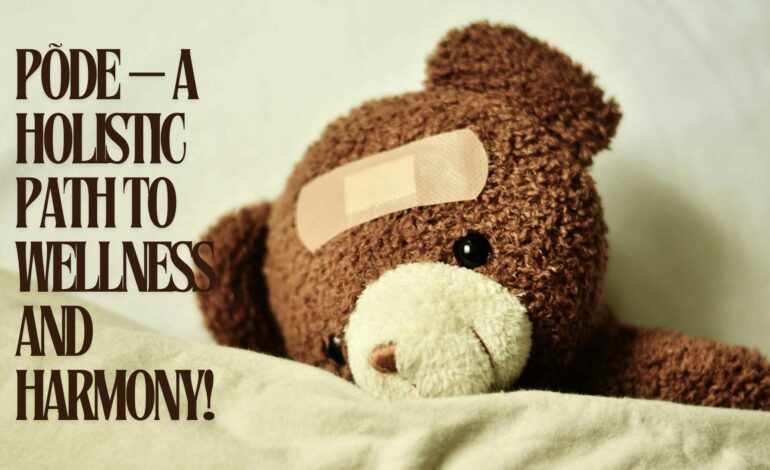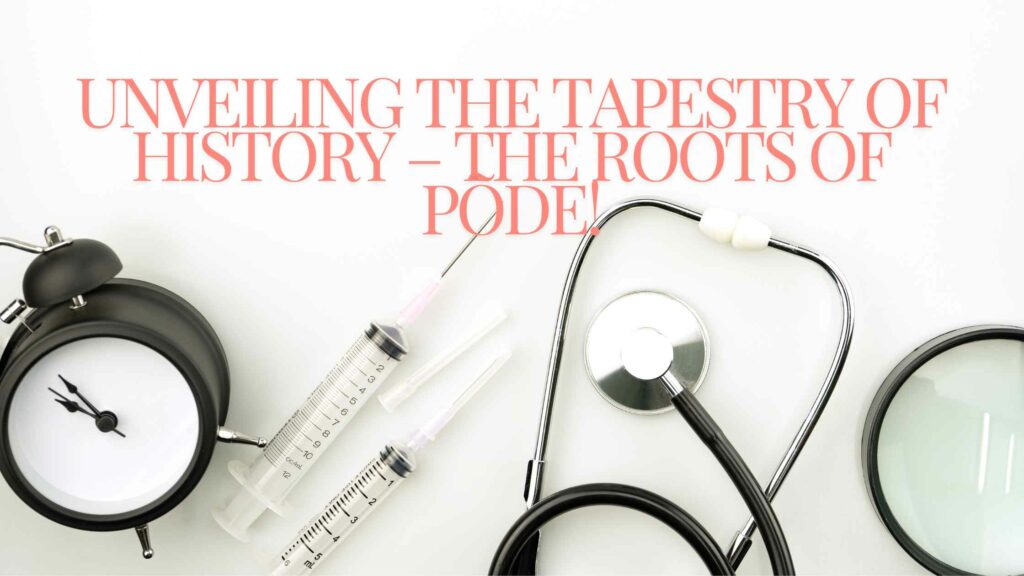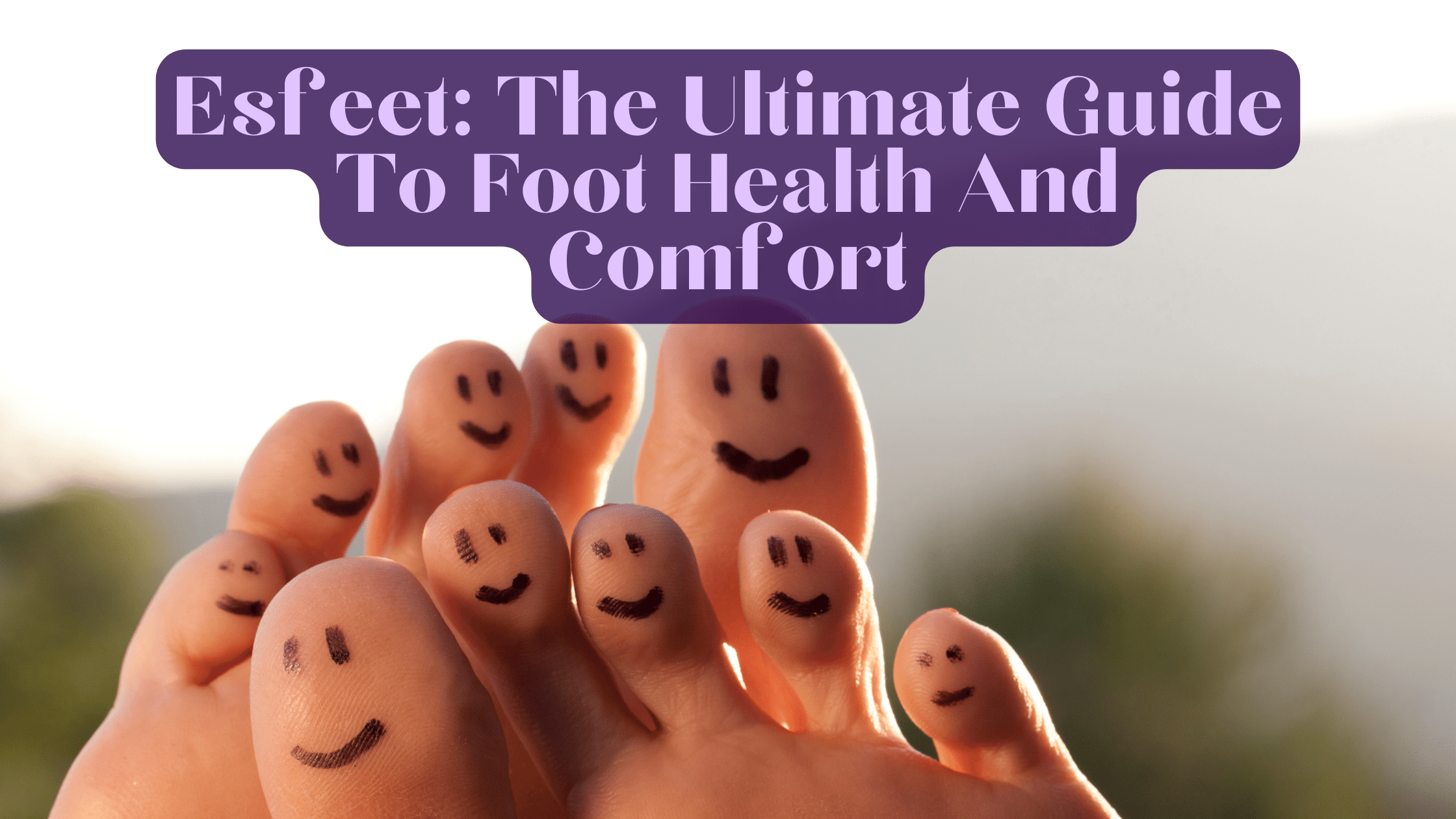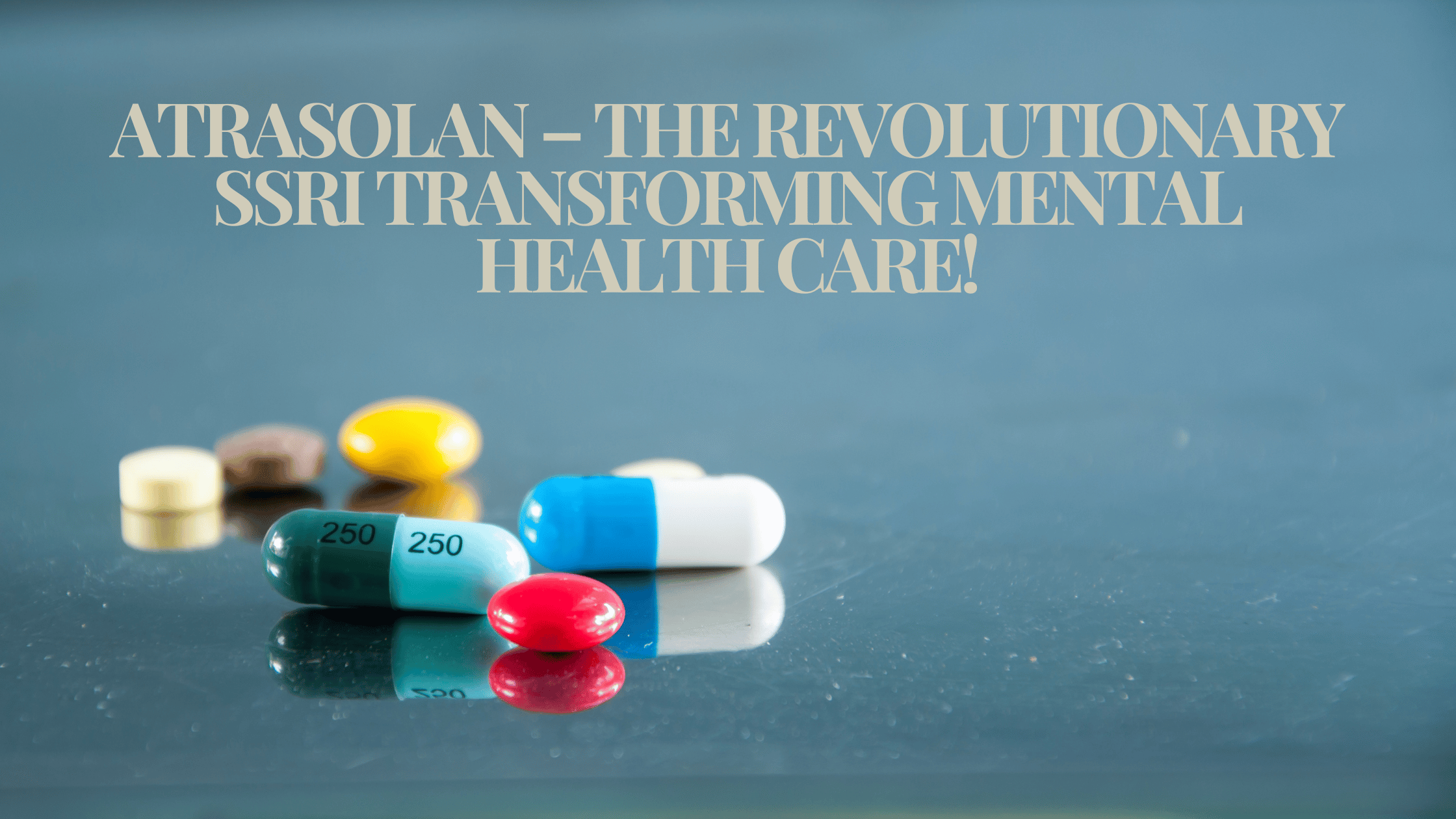
Põde – A Holistic Path To Wellness And Harmony!
In the whirlwind of modern life, the pursuit of inner peace and holistic well-being is more essential than ever. Amidst this quest, the ancient philosophy of Põde emerges as a guiding light, offering profound insights and practical wisdom for nurturing both body and mind.
The term “Põde,” pronounced “poh-deh,” finds its origins in ancient Eastern philosophies. In Sanskrit, Põde relates to concepts within Ayurveda that emphasize nurturing and nourishing the body, mind, and spirit.
Discover the ancient wisdom of Põde and transform your life with holistic wellness – read on to explore this timeless philosophy.
What Is Põde? – Etymology And Meaning!
The term “Põde,” pronounced “poh-deh,” originates from ancient Eastern philosophies and traditions. In Sanskrit, Põde is associated with Ayurveda, an ancient Indian system of medicine, where it embodies the concepts of nurturing and nourishing the body, mind, and spirit. Similarly, in Traditional Chinese Medicine (TCM), the principle of nurturing life, known as Yang Sheng, closely aligns with the essence of Põde.
Põde’s Both Ayurveda and TCM emphasise the importance of a balanced and harmonious lifestyle, which is fundamental to the philosophy of Põde. At its core, Põde is about maintaining equilibrium within oneself and about the environment. This holistic philosophy promotes a lifestyle that nurtures physical health, mental clarity, and spiritual fulfilment.
It advocates for mindful living, fostering a deep connection with nature, and making conscious choices that support overall well-being. By embracing the principles of Põde, individuals can achieve a state of balance and harmony, leading to a healthier, more fulfilled life.
Read Also: Hurbarna – A Journey Into Nature’s Healing Treasures!
Unveiling The Tapestry Of History – The Roots Of Põde!

Ancient Beginnings and Historical Timeline:
The philosophy of Põde finds its roots in the ancient traditions of Ayurveda and Traditional Chinese Medicine (TCM), both of which have significantly influenced its development. Documented evidence suggests that Ayurveda, a 5,000-year-old system from India, is one of the earliest sources of Põde’s core principles. Ancient texts like the Charaka Samhita and Sushruta Samhita detail practices focused on balancing the three doshas—Vata, Pitta, and Kapha which is essential to maintaining health and vitality.
Similarly, TCM, with its history spanning over 2,500 years, contributes to Põde’s foundation through its emphasis on the balance of Yin and Yang and the harmonious flow of Qi. Classical texts such as the Huangdi Neijing provide insights into these ancient practices.
Evolution Across Cultures:
Põde evolved, it integrated practices from various cultures, adapting to different historical and geographical contexts. In ancient China, the principles of Põde were reflected in the cultivation of Qi through practices like tai chi and qigong, which emphasised the balance of energy within the body.
In India, the Ayurvedic emphasis on dietary balance and herbal remedies was incorporated into the holistic practices of Põde. Over time, these principles spread to other regions, blending with local traditions and forming a rich tapestry of holistic health practices that continue to evolve today.
Controversies and Debates:
Despite its ancient origins and widespread acceptance, the history of Põde is not without its controversies. Some scholars debate the exact origins and the degree of influence Ayurveda and TCM have had on each other and Põde. Additionally, there are discussions about adapting these ancient practices in the modern world, especially regarding the commercialization and potential dilution of traditional knowledge.
Põde’s Critics argue that while modern adaptations can make these practices more accessible, they may also compromise their integrity and effectiveness. Despite these debates, the enduring principles of Põde continue to offer valuable insights into achieving holistic well-being.
Read Also: Atrasolan – The Revolutionary Ssri Transforming Mental Health Care!
Principles Of Põde – Holistic Wellness!
Nurturing the Body:
Põde advocates for practices that sustain and nurture the body. This includes maintaining a balanced diet, engaging in regular physical activity, ensuring adequate rest, and utilizing natural remedies for health maintenance.
- Diet and Nutrition: A Põde-based diet prioritizes whole, unprocessed foods rich in nutrients. It aligns with Ayurvedic dietary guidelines tailored to one’s dosha type and TCM’s emphasis on seasonal and locally sourced foods.
- Physical Activity: Regular exercise is crucial for physical health. Practices like yoga, tai chi, and qigong, which integrate movement with breath and mindfulness, are particularly beneficial in the Põde philosophy.
Balancing the Mind:
Mental well-being is a key component of Põde. It involves practices that promote mental clarity, emotional stability, and a positive mindset.
- Mindfulness and Meditation: Central to Põde, mindfulness and meditation help cultivate awareness, reduce stress, and enhance emotional resilience.
- Emotional Wellness: Põde encourages healthy emotional expression and management. Techniques such as journaling, engaging in creative arts, and seeking counselling can support emotional well-being.
Harmonizing with the Environment:
Põde emphasizes the importance of living in harmony with the environment through sustainable practices, connecting with nature, and fostering community.
- Sustainable Living: Integrating sustainable practices, such as reducing waste, conserving energy, and using eco-friendly products, is essential to Põde.
- Nature Connection: Engaging with nature through activities like gardening, hiking, and nature walks can restore balance and harmony.
A Step-By-Step Guide – Nuances Of Pode!
- Learn the Basics: Begin by understanding the foundational principles of Põde, including its emphasis on nurturing the body, balancing the mind, and harmonizing with the environment.
- Consult with a Practitioner: Seek guidance from a qualified practitioner familiar with Põde practices. They can provide personalized recommendations based on your health status and individual needs.
- Start with Diet and Nutrition: Adopt a Põde-based diet focusing on whole, unprocessed foods tailored to your dosha type or health goals. Incorporate seasonal and locally sourced ingredients as recommended by Ayurvedic and TCM principles.
- Explore Physical Activities: Engage in physical activities such as yoga, tai chi, or qigong. Start with beginner-friendly routines to gradually build strength, flexibility, and mindfulness.
- Practice Mindfulness and Meditation: Begin a daily practice of mindfulness and meditation to enhance mental clarity, reduce stress, and foster emotional well-being. Start with short sessions and gradually increase duration as you become more comfortable.
- Connect with Nature: Spend time outdoors engaging in activities like gardening, hiking, or nature walks. These activities not only promote physical health but also deepen your connection with the natural world, a core aspect of Põde.
- Monitor Your Progress: Keep track of how Põde practices impact your well-being. Notice changes in your physical health, mental clarity, emotional stability, and overall sense of harmony.
- Safety Precautions: Prioritize safety by listening to your body’s signals during physical activities and maintaining proper form. If you have any health concerns or conditions, consult with a healthcare professional before starting a new wellness regimen.
- Continued Learning and Adaptation: Stay open to learning and adapting Põde practices to suit your evolving needs and lifestyle. Regularly revisit your practices and seek additional guidance as needed from qualified practitioners or resources.
Read Also: Esfeet: The Ultimate Guide To Foot Health And Comfort in 2024!
Unveiling The Potential Benefits Of Pode – Approach To Health And Harmony!
Stress Reduction:
Põde often reports reduced stress levels through mindfulness, meditation, and holistic living practices. These techniques promote relaxation and help manage stress effectively.
Improved Focus and Mental Clarity:
Engaging in mindfulness and meditation practices is linked to improved focus, concentration, and mental clarity. These practices enhance cognitive function and support overall mental well-being.
Enhanced Emotional Well-being:
Põde encourages healthy emotional expression and management through practices like journaling, creative arts, and counselling. These activities contribute to greater emotional resilience and stability.
Physical Health Benefits:
A põde-based diet rich in whole, nutrient-dense foods and participating in physical activities like yoga and tai chi can lead to improved physical health outcomes. These practices support cardiovascular health, flexibility, and overall vitality.
Connection with Nature:
Spending time in nature, a core aspect of Põde, is associated with mental health benefits such as reduced stress, improved mood, and increased feelings of relaxation and well-being.
Improved Sleep Quality:
Practitioners often report better sleep patterns and improved sleep quality as a result of adopting Põde practices. Techniques such as relaxation exercises, mindful breathing, and maintaining a balanced lifestyle contribute to restful sleep.
Enhanced Energy Levels:
Engaging in Põde activities like yoga and qigong, which combine movement with mindfulness, can boost energy levels and promote a sense of vitality throughout the day.
Support for Emotional Resilience:
Põde practices such as mindfulness and emotional wellness techniques help individuals build emotional resilience. This includes the ability to cope with challenges, regulate emotions effectively, and maintain a positive outlook.
Positive Impact on Chronic Conditions:
Some studies suggest that Põde practices may have a positive impact on managing chronic health conditions such as hypertension, anxiety disorders, and chronic pain. These benefits are attributed to stress reduction, improved lifestyle habits, and enhanced overall well-being.
Overall Well-being:
Põde is associated with a sense of overall well-being, encompassing physical health, mental clarity, emotional stability, and spiritual fulfilment. This holistic approach supports a balanced and harmonious life.
Is Pode Right For You? – Transformative Potential Analysis!
Before embracing Põde as a wellness practice, it’s essential to consider several factors to ensure it aligns with your individual needs and health status. Firstly, individuals with pre-existing health conditions or concerns should consult a healthcare professional before beginning any new wellness regimen, including Põde.
This is particularly important to assess how Põde practices, such as dietary changes, physical activities like yoga, or mindfulness techniques, may interact with existing treatments or conditions. A healthcare provider can offer personalized guidance to ensure safety and suitability. While emphasizes holistic practices that nurture the body, balance the mind, and harmonize with the environment, it may not resonate with everyone.
Põde For those seeking alternative approaches, exploring practices like mindful walking, progressive muscle relaxation, or other forms of exercise and relaxation techniques can offer similar benefits tailored to individual preferences and lifestyles. Ultimately, the decision to adopt or any wellness practice should be based on informed consideration of personal health needs and preferences, guided by professional advice where necessary.
Frequently Asked Questions:
Q1. What exactly is Pode?
Pode is a practice with a shrouded history, but it generally involves focused movements and techniques aimed at achieving physical or mental well-being.
Q2. Where did Pode originate?
The exact origins remain unclear, with some theories suggesting roots in ancient cultures across various regions.
Q3. What are some potential benefits of Pode?
Practitioners often report benefits like reduced stress, improved focus, and a heightened sense of well-being.
Q4. Can anyone try Pode?
While seems generally safe, it’s always wise to consult a healthcare professional before starting any new practice, especially if you have pre-existing health conditions.
Q5. Are there different types of Pode practices?
There might be variations in techniques depending on the tradition or lineage. Researching different approaches can help you find what resonates with you.
Conclusion:
Unveiling Põde secrets has been a captivating journey. This enigmatic practice, steeped in history, offers a path to potential physical and mental well-being. While further research is needed to solidify its effectiveness, Pode’s holistic approach and focus on intention hold immense promise. As we delve deeper into its possibilities, Pode might emerge as a valuable tool for navigating the complexities of modern life, fostering a sense of calmness, focus, and a deeper connection to ourselves.





